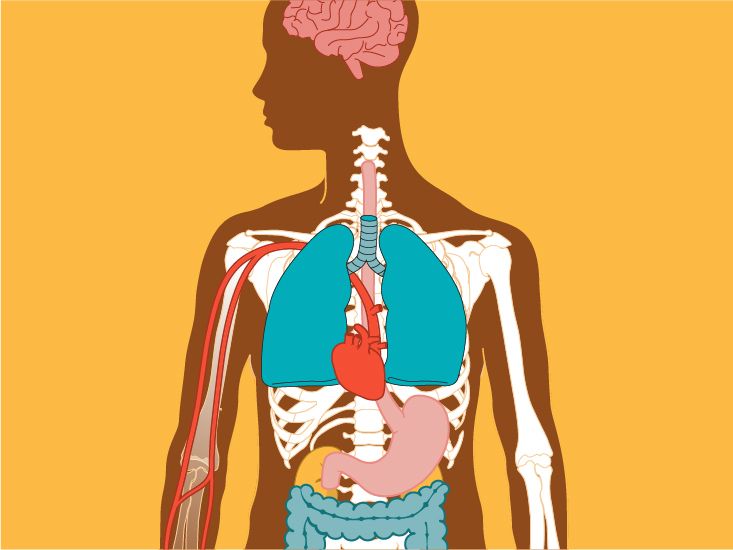
Stress is a natural human response that can significantly influence both mental and physical health. While a moderate level of stress can be beneficial, chronic stress can lead to serious health complications affecting various body systems.
Understanding Stress

Stress is defined as a state of worry or mental tension caused by difficult situations. It triggers a biological response that prepares the body to respond to challenges, often referred to as the 'fight or flight' response. This response is mediated by the release of hormones such as adrenaline and cortisol, which increase heart rate, blood pressure, and energy supplies[6]. In short bursts, stress can enhance performance and focus; however, when stress becomes chronic, it can severely disrupt bodily functions and impact health[8][9].
Effects of Chronic Stress
Mental Health Consequences

Chronic stress is associated with a range of mental health issues, including anxiety and depression. It can exacerbate pre-existing mental health conditions and significantly impair cognitive functions such as concentration and memory[6][9]. People suffering from ongoing stress often exhibit symptoms such as irritability, fatigue, and feelings of overwhelm. There is a strong connection between chronic stress and disorders like post-traumatic stress disorder (PTSD) and other anxiety-related conditions[7][8].
Moreover, chronic stress can lead to burnout, a state of emotional, physical, and mental exhaustion caused by prolonged and excessive stress[2][4]. Many individuals find it increasingly difficult to cope with daily responsibilities, leading to a further decline in mental well-being.
Physical Health Implications

The physical ramifications of chronic stress are equally concerning. Prolonged activation of the stress response can negatively impact several major bodily systems:
Cardiovascular System: Chronic stress leads to elevated levels of cortisol, which can increase blood pressure and heart rate, heightening the risk of heart attacks and strokes[3][6][9]. Over time, this might cause or worsen existing cardiovascular diseases.
Immune System: Initially, the stress response can boost the immune system, enabling the body to fend off infections. However, prolonged stress can suppress immune function, making individuals more susceptible to illnesses and infections[1][4][8]. This immune suppression can lead to chronic inflammation, an underlying factor in many diseases, including autoimmune disorders[5].
Endocrine System: Chronic stress affects hormonal balance, which can influence reproductive health. Stress can lead to disturbances in menstrual cycles for women and erectile dysfunction in men, as well as changes in libido for both genders[1][8]. Additionally, chronic stress has been linked to conditions such as type 2 diabetes due to elevated cortisol levels disrupting glucose metabolism[9].
Digestive System: The gut-brain connection plays a vital role in how stress impacts digestive health. Chronic stress can lead to conditions like irritable bowel syndrome (IBS), heartburn, and other gastrointestinal issues due to changes in gut bacteria and increased acid production[4][9]. Symptoms may include nausea, diarrhea, or constipation, which can significantly reduce quality of life.
Musculoskeletal System: Stress causes muscle tension, which can lead to chronic pain conditions, including headaches and back pain. This ongoing muscle tension prevents relaxation and exacerbates physical discomfort, creating a vicious cycle of stress and pain[8][9].
Coping with Stress

Given that stress can severely impact health, it’s crucial to develop effective coping strategies. Several techniques can help manage stress and mitigate its effects:
Self-Care Practices: Engaging in regular physical activity, ensuring adequate sleep, and eating a balanced diet can improve overall health and help manage stress. Exercise, in particular, is effective in reducing stress levels and improving mood by releasing endorphins[2][4].
Mindfulness and Relaxation Techniques: Practices like deep breathing, meditation, or yoga can enhance relaxation. These activities help in managing the body's stress response, enabling better emotional regulation[4][5].
Social Support: Building connections with friends and family provides emotional support, which can buffer against the adverse effects of stress. Talking about one’s feelings can also alleviate the burden of chronic stress[6][9].
Professional Help: If stress becomes overwhelming, seeking assistance from mental health professionals can be beneficial. Cognitive Behavioral Therapy (CBT) is particularly effective in modifying the thought patterns associated with stress, helping individuals develop healthier coping mechanisms[7][9].
Setting Boundaries: Learning to say no to non-essential commitments can diminish feelings of being overwhelmed. Establishing limits can create a more manageable daily routine, reducing overall stress[9].
Conclusion
:max_bytes(150000):strip_icc()/GettyImages-1273890998-3e61d3cfdd5a49bdaf27cb9fe0c0b8a6.jpg)
Stress is an integral part of life; however, its chronic form poses a serious threat to overall health. Its effects permeate various body systems, leading to both mental and physical health challenges. To mitigate these impacts, it is essential to recognize stressors and adopt effective coping strategies. By prioritizing self-care, social support, and professional guidance when necessary, individuals can significantly improve their resilience against the many deleterious effects of stress.
Get more accurate answers with Super Pandi, upload files, personalized discovery feed, save searches and contribute to the PandiPedia.
Let's look at alternatives:
- Modify the query.
- Start a new thread.
- Remove sources (if manually added).